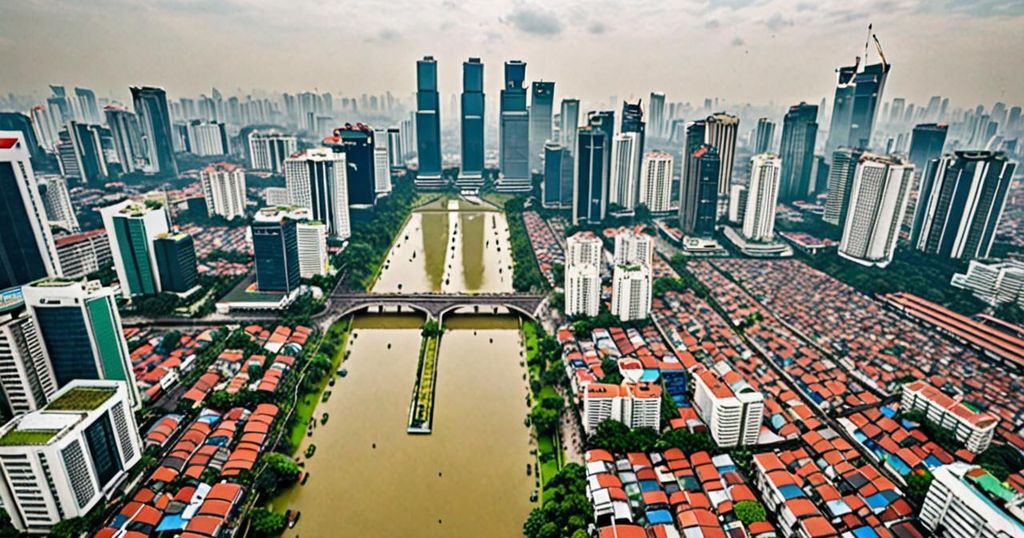Indonesia has undertaken the formidable task of significantly reducing carbon emissions and targeting net-zero emissions by 2050. Jakarta, the country’s capital, is a major contributor to these emissions, prompting both governmental and societal entities to unite in addressing this pressing issue.
The escalating levels of carbon dioxide emissions, reaching alarming proportions, underscore the urgent need for action. According to Ourworldindata.org, the world emitted 37.12 billion tonnes of CO2 in 2021, exacerbating global warming. Indonesia itself produced approximately 619.28 million tonnes of CO2 in 2021, with Jakarta playing a significant role in this concerning statistic.
The ambitious objective for Jakarta to achieve net-zero emissions by 2050 represents a positive step forward. Nevertheless, experts such as Leonard Simanjuntak, the country director for Greenpeace Indonesia, and Elisabeth Rianawati, director of RDI, highlight the formidable nature of this endeavor. Despite the ongoing efforts and strategies, reducing carbon emissions in a city with over 20.2 million private vehicles presents a substantial challenge.
In response, Jakarta’s Transportation Agency has implemented a novel approach, emphasizing transit-oriented development and promoting pedestrians, cyclists, and environmentally-friendly modes of transportation. While this shift in approach is promising, challenges such as underutilized bike lanes and the need for more effective public transportation persist.
The city government is pursuing diverse strategies to encourage a transition from private vehicles to public transportation, including affordable integrated fare systems and park-and-ride facilities. Moreover, plans to upgrade the public transportation fleet with electric buses and provide subsidies for electric vehicles are underway. These initiatives aim to render public transportation a more appealing and cost-effective choice for citizens.
Collaboration among various stakeholders is pivotal to the success of this endeavor. With a focus on enhancing the city’s spatial plan and minimizing air pollution, both governmental and civil society organizations are actively cooperating to achieve the 2050 target. Initiatives such as promoting cycling in schools and advocating for electric vehicles underscore the collective efforts aimed at reducing carbon emissions in Jakarta.
Despite the magnitude of the task, the determination and collaborative spirit demonstrated by all involved reflect a shared commitment to safeguarding the environment and ensuring a sustainable future for Jakarta.
In conclusion, the path toward achieving net-zero emissions by 2050 is replete with challenges, yet the concerted efforts of the government, organizations, and citizens are paving the way for a greener and more sustainable Jakarta.
Source: The Jakarta Post

Leave a Reply